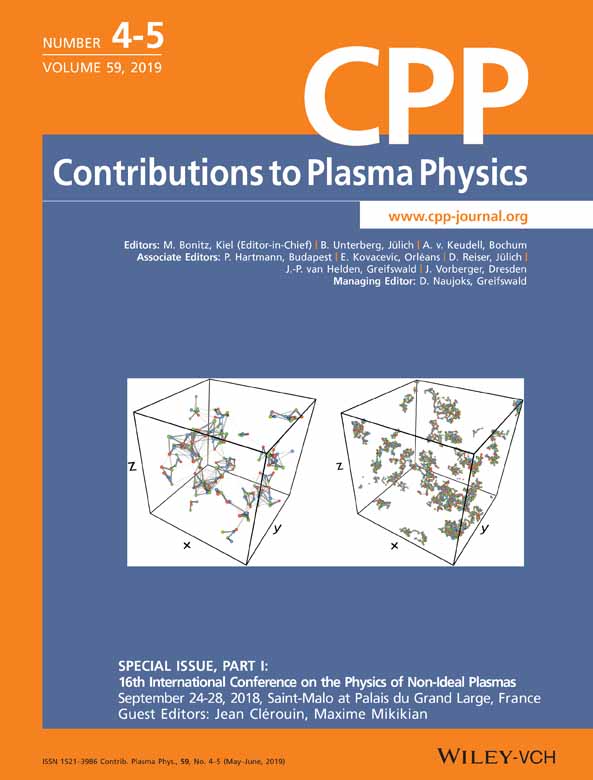Effect of the non-linear screening on a modification of the Debye–Hückel plus hole approximation in complex plasma
Abstract
The authors analyse two-component electroneutral systems of classical macroions of finite size and point-like oppositely charged microions. This article deals with the modification of the Debye–Hückel plus hole approximation when a non-linear screening effect is taken into account in a complex plasma. Parameters of non-linear screening of the macroions by surrounding microions are calculated within the framework of the Poisson–Boltzmann approximation. Two effects are found as a result of such calculations: (a) subdivision of all microions into two subclasses, free microions and bound microions and (b) a significant reduction of an effective charge Z* of the macroion in comparison with its true value Z due to the non-linear screening by a thin high-density envelope of the bound microions. We show that the value of a non-ideal portion of an internal energy differs considerably in the case when the non-linear screening effect is taken into account in the vicinity of the macroion.




